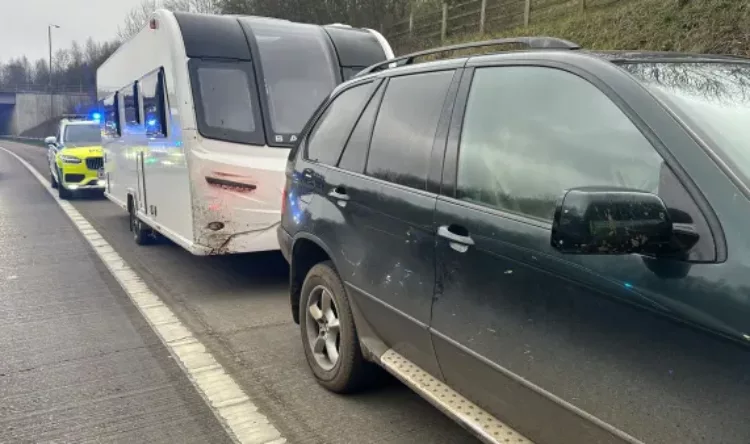Check out these frequently asked questions
From ADIs & PDIs from across the industry on a range of issues and topics
Invoking the spirit of our very own ‘Agony Aunt’ in the form of the lovely and well-versed Lou Walsh, we hope to provide solutions to your professional queries and answers to your industry questions.
Who Am I?
I’m planning on relocating soon. How should I go about promoting my business in the new area?
Lisa, ADI
Answer: There are lots of things you can do to help elevate your presence locally, getting you seen without having to spend too much money. Start now by hunting out and befriending local instructors, and seeing if they have a local association. Making local contacts early can really help you hit the ground running when you arrive. Why not ask one or two of them if they could possibly spend an hour or two helping you get familiar with the area if you’re not too sure about it (I did… I offered to pay for the instructor’s time and it was worth every minute of their hourly rate)? See if there is local instructor who is about to retire, go on maternity leave or off sick temporarily, and see if you can cover any lessons for them or take over their business. Maybe offer to do some mock tests for other schools too as a way of befriending local driving schools or other ADIs, while also getting to know the area. Tap into your local market in terms of student base by finding out where the 6th form schools and colleges are. Make contact with your local driving assessment/mobility centre perhaps. This research will help you target your marketing where the work is. Once you’ve moved, leaflet drop and find out about local community websites to get your name on. Consider doing immediate intensive courses to fill your diary and start the money coming in. Go out and about in your decaled car, looking busy and getting seen. If you don’t have a ‘uniform’ think about having a couple of polo shirts with your school name embroidered on so that you’re a walking advert everywhere you go. Have business cards ready when you’re then wearing your polo shirt in the supermarket and you get stopped or questioned! It goes without saying that a good website and social media profile will support all this, and before you know it the phone will start ringing.
Steer Clear
When on a two lane carriageway or dual carriageway and you need to pass a parked or stranded car that’s obstructing part of lane one, do you encourage your pupils to straddle lane one and two, or do a complete lane change and move over into lane two completely?
Pardeep, ADI
Answer: Personally, if I’m crossing a white line on a dual carriageway to go around a stranded car I’m doing it with as much clearance and making it as obvious as possible; full signal and complete lane change. Whatever is going on with that car, I want to be as far away from it as possible. Anything a bit suspicious or out of place, and I’m putting as much space between it and me as I can. This is what I’d be advising my pupils to be doing too, along with the conversation about why this may be the wisest option for all.
Independently Driving
I was explaining to a pupil that in the driving test they won’t get a fault for going the wrong way as long as they are driving correctly. My pupil asked: “So, if you just drove around on roads you like, taking no notice of the examiner’s instructions, you would still pass?” It got me wondering…?!
Jon, ADI
Answer: Here’s the official answer from my ‘go to’ examiner: “Going wrong but driving right is not a fault in itself and, of course, not particularly unusual! If, however, a pupil continued to go wrong (so after two or three wrong turns) the examiner would take control, direct very specifically, even advise a lane choice (but not say how to do it) and make it almost impossible to not follow a direction. In terms of a pupil constructing their own route, the benefit of the doubt would have to be given, but it’s highly unlikely to happen… and because the routes incorporate certain conditions and elements, the examiner would still control to allow evidence of the skills needed to be shown.
In terms of getting lost, most examiners wing it (successfully), but would have no issue in getting themselves unlost if needed! It’s the examiner’s role to control and would do this, including stopping the independent drive if needed. If a pupil is clearly unable to follow directions due to severe test nerves the examiner would terminate on safety grounds.”
No Response
When we ask the question: “How can I help you achieve that?”, what answers should we expect? I just get the response: “I dunno….”!
Hanni, PDI
Answer: Quite often when we get answers that don’t really help us, it’s because the question hasn’t been right. It could be that by simply rewording it you will inspire an answer. Try changing the words to make them a little more teenage friendly. For example, I might say something like: “Anything I can do to help?”, or “What’s my job in all of this today?” I sometimes say: “What’s my role and responsibility?” as it makes the question clearer and easier to understand. Questions like this tend to provoke a response like: “Can we do it together?”, “Can you show me first?”, or “Stop me if I’m going to kill someone!”. I very rarely get “I dunno…”.
We Come In Peace
When you make first contact with a pupil, do you have a list of questions you ask them or a checklist of information you give?
Richard, PDI
Answer: I know it sounds strange but confirm where they live first! There is no point in booking them in only to discover they Googled instructors in their area and you are in fact 200 miles away from each other, but in a village with the same name! It may also sound weird, but also confirming when they turn 17 is a good idea. You’ll be surprised how many think it’s ok to drive just before they turn 17 because they have been given a provisional licence. Check they have applied for or received their provisional driving licence. Ask if they have any previous experience so you have some idea of their skill level. If they book, make sure you have their full name and address, contact number and that you know where they want collecting from or meeting. It could be that college or work is better than the home address, depending on when your first lesson is scheduled for. Discuss payment including any advance blocks deals or pre-payment terms and conditions you may have.
Ask what their hopes and expectations are from the lessons, and generally build a picture of what their attitude is, their aims, targets and needs. How did they hear about you? It’s good to know who or where recommendations are coming from, or which advertising platform is working for you. Keep it friendly, professional, interested in them and go with the flow. Chances are they’ll be asking the questions, not you!
If you are interested in finding out more about some of the courses Lou has to offer, visit her website – https://driving-instructor.site/






